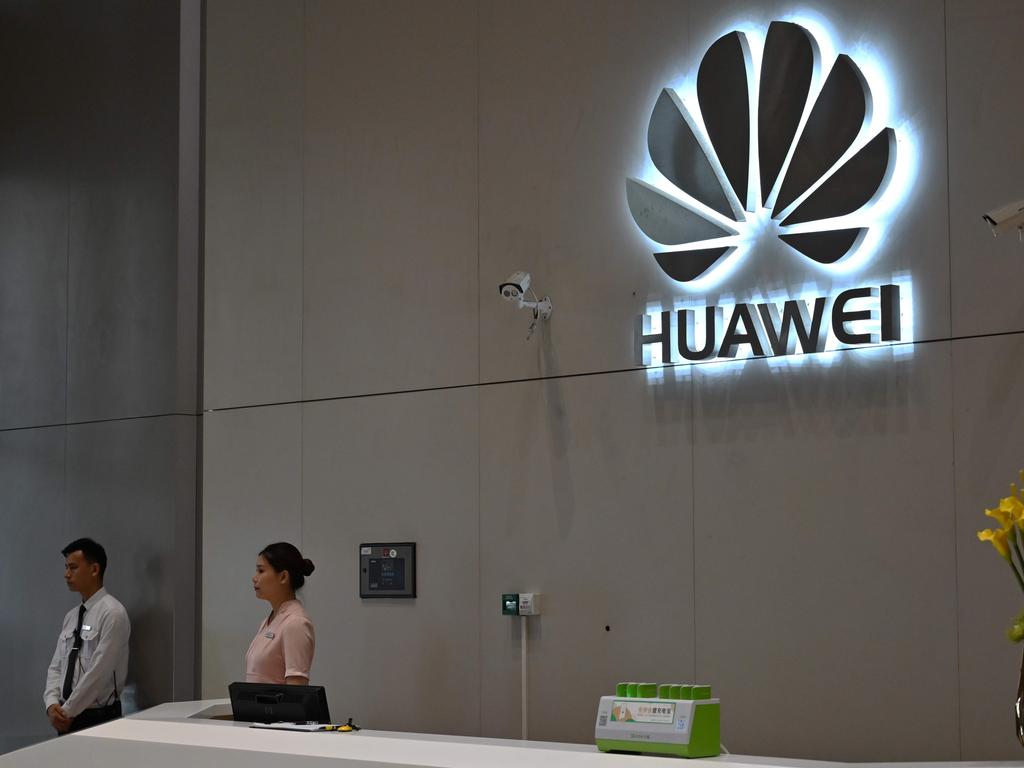Huawei security boss John Suffolk appears in London committee hearing
There have been heated scenes, with a Huawei executive accused of being a “moral vacuum” as he squared off against MPs.
Huawei’s cyber security chief clashed with MPs and was called a “moral vacuum” during a Science and Technology Select Committee hearing in London.
John Suffolk told the UK parliament on Monday the Chinese telecoms giant had been advised it was under no obligation to spy for Beijing if so asked by the Communist state.
Mr Suffolk told a committee hearing Huawei had sought guidance from its attorneys to see if a Chinese law on domestic companies’ co-operation with the government on security matters could force it to conduct foreign intelligence work.
The legislation has been cited by US President Donald Trump’s administration in its attempts to force governments across the world to drop Huawei from their 5G network development plans.
Mr Suffolk was also asked about a report published by the Australian Policy and Strategy Institute that outlined the company’s role in repressing ethnic minorities in China’s Xinjiang province, the Sydney Morning Herald reports.
“Should we do business with a company that’s complicit in human rights abuses?” Liberal Democrat MP Norman Lamb asked.
“I think you should do business with all companies that stick to the law,” Mr Suffolk replied.
Asked if he had a view on whether the Chinese Communist Party repressed human rights, Mr Suffolk said: “I don’t have a view on that.”
Conservative MP Julian Lewis responded by calling Mr Suffolk a “moral vacuum”.
“There are no laws in China that obligate us to work with the Chinese government with anything whatsoever,” Mr Suffolk said.
“Our legal advice is that is not the case.”

Britain and other states are concerned by a series of Chinese laws, including one adopted in June 2017 covering private companies and intelligence matters.
Mr Lewis cited the legislation as saying Beijing had the power to “request the relevant organisations and civilians to provide necessary support, assistance and co-operation” to various Chinese security agencies.
Mr Suffolk said the legislation’s “unclear” wording forced Huawei to consult its Chinese attorneys and advisers at London’s Clifford Chance law firm.
“Many countries produce laws that are unclear, and we have had to go through a period of clarification with the Chinese government that have come out and made it quite clear that (spying) is not the requirement on any company,” Mr Suffolk said.
“We have had that validated again by our lawyers and revalidated again by Clifford Chance. I believe there is no such obligation.”
Mr Lewis called Mr Suffolk’s explanation “entirely unbelievable”.
Mr Suffolk’s appearance before the UK parliament’s science and technology committee came as Britain prepares to publish delayed policy guidelines for the next-generation technology’s rollout.
Huawei provides the most advanced — and least expensive — 5G technology in the world.
It is also widely integrated into Britain’s existing 4G network and has been co-operating with the UK government since 2010 on cyber security threats.
UK intelligence agencies have been unable to agree whether it was wiser to “manage” risks by working more closely with Huawei — or to fall behind technologically and wait for Western companies to develop their own 5G systems.
The Trump administration has warned the US may have to stop sharing intelligence with Britain if it builds its new network around Huawei hardware.
British politicians have been further unnerved by revelations first made by Australian researchers that Huawei’s technology was being used to conduct surveillance in China’s Xinjiang region.
Chinese authorities have placed an estimated one million mostly Muslim ethnic minorities — including Uighurs — in internment camps with the help of face recognition technology.
Mr Suffolk confirmed Huawei’s equipment was being used by a “partner” in Xinjiang.
“Our contracts are with a third party. It is not something we do directly,” he said.
Committee members pressed Mr Suffolk on whether he felt “complicit” in wide-scale abuses of human rights.
“I don’t think it’s for us to make such judgments,” Mr Suffolk said. “Our judgment is, is it legal within the countries in which we operate? That’s our criteria. It’s for others to make a judgment on whether it’s right or wrong.”



